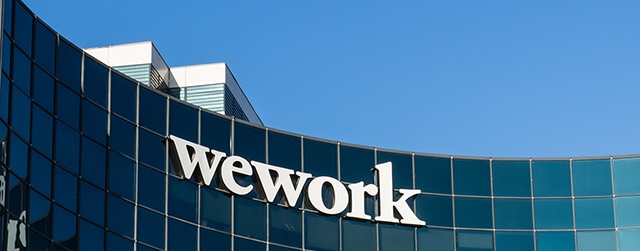Opportunities for tech IPOs may have peaked if WeWork's troubles are anything to judge by.

Executives of tech unicorns—private companies valued at more than $1 billion—were likely pleased with the early reception that Lyft got for its initial public offering last week, but equally dismayed with the second-day experience for investors.
The number tworide-sharing company debuted in public markets at the high end of its expected price range and popped more than 20% after trading commenced. However, it ended its first day of trading last Friday with a 9% gain and on its second day of trading, the shares plunged more than 10%, already falling below the IPO price.
While 2019 is expected to be a banner year for tech IPOs, unicorns like Uber, Pinterest and Airbnb that are planning a public offering may find their window of opportunity is closing.We Company—formerly WeWork—may be just one example of this. The flexible office space provider has not filed for any public offering, but given recent developments with its biggest investor SoftBank, it is probably considering the option.
The Japanese telecom company with a nearly $100 billion investment fund has reportedly sunk more than $10 billion into WeWork to help fund its breakneck expansion. The company enters into long-term leases, spruces up the properties and rents out space to members. Last year, revenues doubled to $1.82 billion, paying members more than doubled to over 400,000 and the company expanded to 425 locations in 100 cities globally. Of course, losses also doubled to $1.9 billion and the business is burning cash at a rate that will rapidly shrink its $6.6 billion cash reserves.
“They can keep this going until their business model gets tested by an economic downturn or until investors start asking questions about it,” said Jesse Rosenthal, a credit analyst with CreditSights.
SoftBank may be asking questions. In January, it added $2 billion to its investment at terms that suggest a $47 billion valuation for the company. But that transaction was a small fraction of the $16 billion investment that was reportedly being discussed. If SoftBank’s commitment to WeWork is waning, the company’s business model may be unsustainable without new sources of capital.
WeWork CFO Arte Minson has suggested the company will continue its aggressive rate of expansion. Minson is now WeWork’s public face since charges of self-dealing were leveled at CEO and founder Adam Neumann earlier this year. Neumann is reportedly taking in over $10 million in rent by leasing a number of properties to the company he runs.
A public equity offering may be WeWork’s best option to maintain its growth strategy. Last year, the company raised $702 million via a bond offering with a yield of 7.875 percent. The bonds traded as low as $86 per $100 face value after the January Softbank transaction was revealed, giving them an effective yield of over 9% and a very low-rated junk status. In other words, more debt capital will likely be very expensive.
“I think very few investors are bullish on WeWork’s credit profile, but they have SoftBank behind them,” said Rosenthal.
The question is how long will SoftBank have WeWork’s back?



